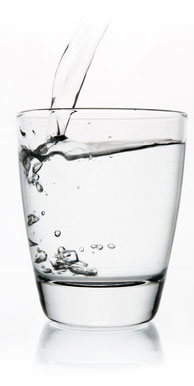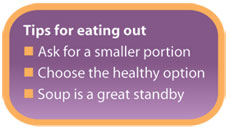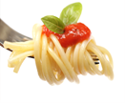As stated elsewhere there is little standard practice about diet rules post op, between team so I will speak in general terms. General principles do seem to exist amongst surgical teams, but a person often has to get on with life post op and make the best in real world situations.

Immediately Post Operation
For all three operations, there is a staged diet of changes from nil by mouth through to fluids, sloppies, and and on to sloppies. Timescale for this can vary depending on your operation and your surgical team. We will eventually post up some examples. I would stress however that you should stick to the advice given.
There are certain situations, which can occur, and I will try to offer some practical solutions.
Vomiting
The commonest cause of vomiting for the RNY patient is insufficient chewing, Large pieces of food can block the new stomach outlet and nothing can get past.
Often bandsters report a symptom call productive burping. When either to much food is taken, food not chewed sufficiently or eaten to quickly it can come back up. This will happen quite quickly and the food will be almost unchanged.
Vomiting post Roux-en-Y during the transition from sloppy food to solids
Many people experience difficulty with this transition Make sure you are doing it at the time advised by your surgeon. Try to be cautious careful and not push yourself too hard. Treat your new pouch well and with respect and you will get the best from it. Some people experience a narrowing of the outlet from the pouch, and need a small operation to sort it out. Don't conclude that if it happens once you need an operation. Go back a stage in your diet. If its really bad go back to sips of clear fluid.
Nobody likes vomiting and it can be distressing for family too. The vomit Is different from pre-op often it will look just like food and sometimes there will be copious amounts of slimy clear mucous. If the vomiting persists every time you try solids and with a range of food contact your team for advice.
If the vomiting persists you may be treated as a day patient for a stricture. A tube is passed down your gullet and the opening made wider. It is just like having a gatroscopy. There may be an additional cost for this if you are a private patient.
Fluids
Fluids are vital for everyone, and most people find taking enough difficult. Any teams recommend three litres a day.
In the early days a bottle with a sports cap is a great help in increasing the amount of fluids. Beware hidden sugars in drinks, especially juices and shop bought drinks. Tea an coffee contain diuretics (diuretics increase the excretion of water from the body) and this also needs to be considered
Protein Malnutrition in Duodenal Switch
It is vital the DS patient takes in enough protein. Current recommended levels are between 80-100g of protein a day. Lack of protein can cause major problems which can require food supplements, tube or intravenous feeding.
Head Hunger (All surgery types)
This term refers to a series of feeling that people can experience post op. Often a person may feel physical fullness but their mind tells them that they want more. Often people can experience a wish for strong flavoured tasty things, which on one level they know they cannot eat but they crave the pleasure of a familiar often favourite pre-op meal. Your relationship with food immediately after your operation changes quite dramitcally and it can take some time for you both to get used to it.
Living post operatively
Portion sizes do increase for both the DS and the bypass. For a bandster restriction will depend on adjustment. Some bandsters seem to want to be as tight as possible but while the weight loss can be attractive often more poblems can occur if that road is chosen.
Just a few brief tips
Eating out - try to avoid the syndrome of eating a child meal (ie a nuggets and chips type thing).
Ask for a smaller portion. Eat a healthy option. Soup is a great standby. Try to know what meals suit you in different types of restaurants. Don't be afraid to ask for two starters or a small portion or to take something home.
Alcohol
Is fine in moderation - stick to your limits and be aware that in the early days alcohol seems to work qicker and have a greater effect.
Chocolates and sweet treats
People seem to fall into three categories:
- The lucky ones who don't bother with this sort of thing at all.
- The unfortunate for who one piece is to many and 20 not enough.
- The third group can get along with a small ration stop and feel content.
I belong to the second group so I believe abstinence is the best option for me.
Fizzy Drinks
Many surgeons give differening advice- ask your team.
Take aways
Are often a source of high fat meals - ask your self how many times you eat take aways and cut down. Look for the healthiest option on the menu.
Ready Meals
Try to cut down on the number of ready meals you eat each week. Make some time to prepare yourself some healthier often cheaper meals.
Eating at work
Don't snack throughout the day- have a definite mid morning break an apple or other piece of fruit.
Cereal bars (100kcals a time) are a good substitute.
Plan what you are going to eat and when and where. Avoid garages and supermarkets.
Holidays
Accept you will eat more but try to do more you may be surprised and lose weight.
At Christmas expect to put on some weight - most people do but take some exercise.
Become an obsessive shopper, read labels and don't buy rubbish (junk food) in.







